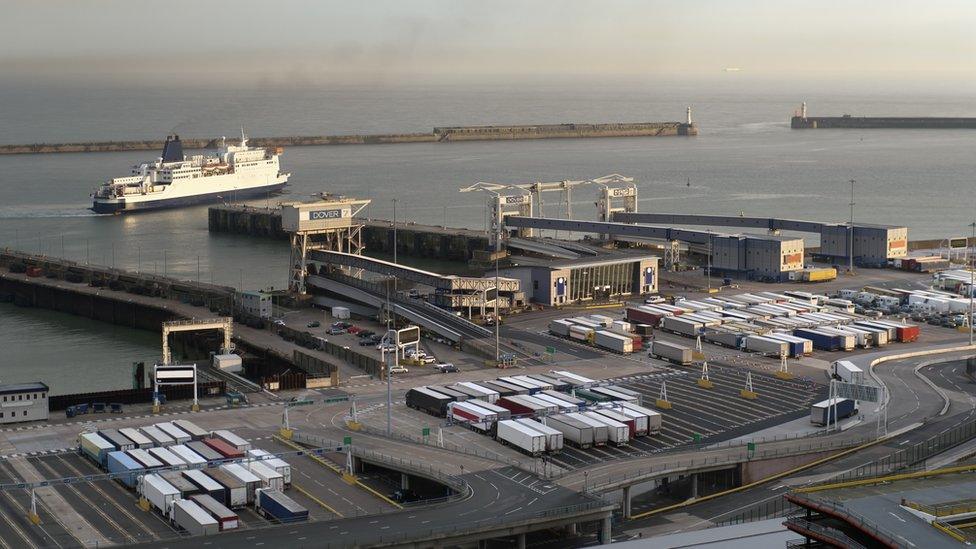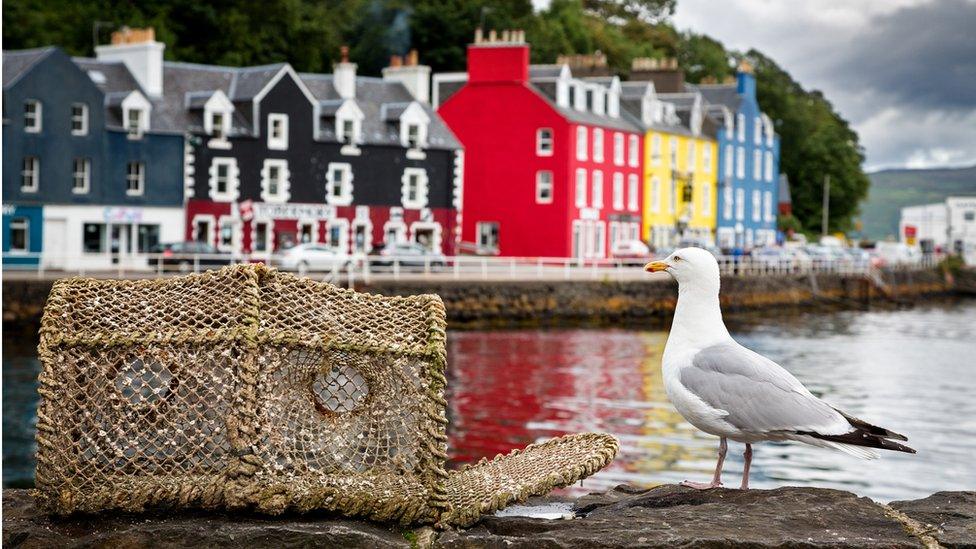Brexit plea over Scotland's perishable exports
- Published

The UK government has arranged additional freight capacity
Scotland's transport secretary has called for time-sensitive exports to be given priority in the event of a no-deal Brexit.
Michael Matheson has written to his UK counterpart Chris Grayling asking for goods such as Scottish seafood to be given space on ferries.
He warned that livelihoods were being put at risk by this "lack of support for exporting businesses".
The UK government said it was preparing for "all possible" Brexit outcomes.
Mr Matheson claimed that the Department for Transport had failed to take action despite the issue being raised in previous correspondence from the Scottish government.
He said: said: "With an annual value of £944m, seafood accounts for 58% of Scotland's total food exports.
"Seafood is highly perishable and therefore dependent on the sort of swift and reliable transport connections which would be damaged by a disorderly UK exit from the EU."

The Scottish government believes livelihoods are at risk in rural communities
Mr Matheson is asking the UK government to look again at the issues of prioritisation, and what assurance it can give businesses that their critical routes to market will be maintained in the event of a no-deal.
He added: "We have also asked that these exports are given priority access to the additional ferry capacity secured by the UK government where this is not required for essential supplies. So far, these requests have been refused.
"This lack of support for exporting businesses, which threatens the livelihoods of many in Scotland, especially in our more remote and rural communities, is of great concern to us and to the industries affected.
"The current situation, which puts at risk jobs and livelihoods, is simply not acceptable."
The UK government said the extra shipping it had hired is intended for critical supplies.
"Leaving the European Union with a deal remains our priority," a spokesman said, "but we continue to work with Scottish industry to prepare for all possible outcomes.
"As agreed by ministers across government, only goods critical to the preservation of human and animal welfare - such as medicines - will be given access to the government-secured freight capacity."
He added that unused capacity will be released for sale on the open market and will be available to all suppliers.